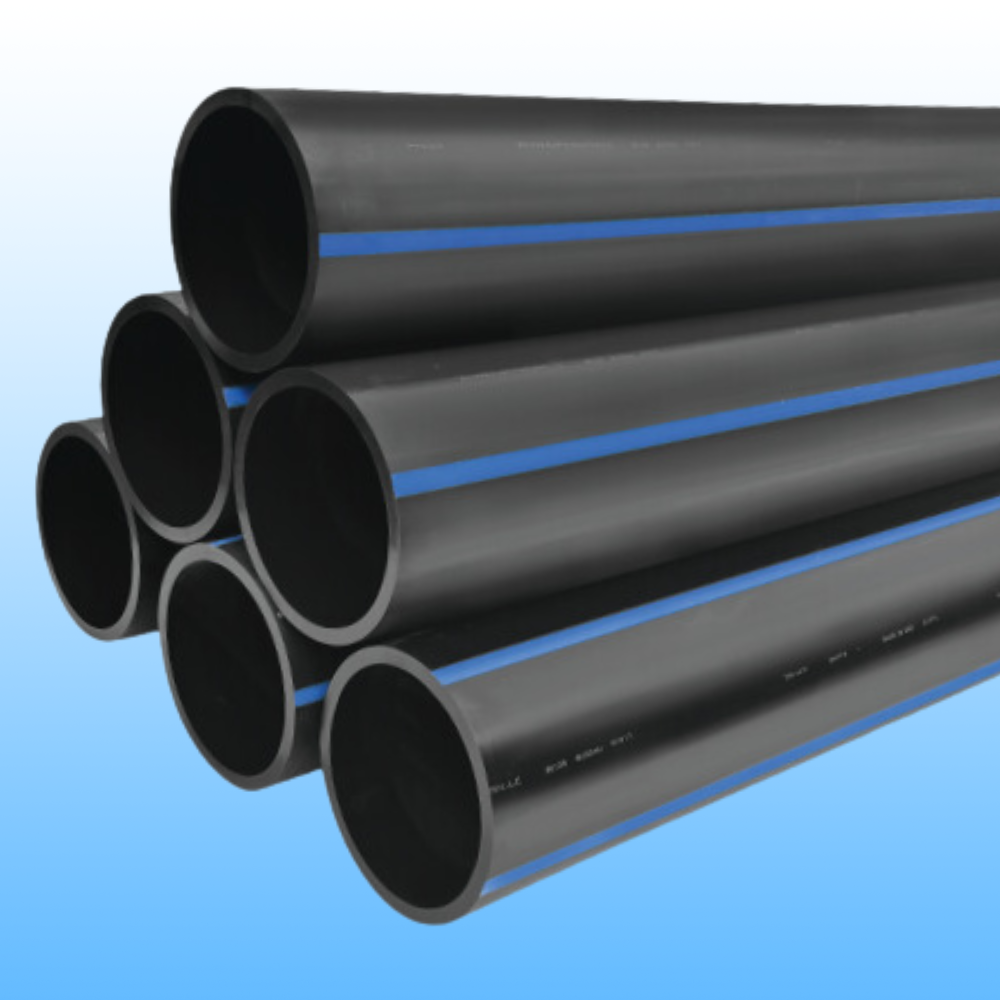Why Partnering with Pipe Supplier American Plastics Midland Ensures Timely Supply
Wiki Article
Recognizing the Key Perks of HDPE Pipe for Water and Wastewater Management
Using HDPE pipeline in water and wastewater monitoring presents various advantages that merit factor to consider. Its remarkable sturdiness and lengthy life-span make it a recommended choice for lots of tasks. Additionally, the product's resistance to corrosion and chemical damage enhances its integrity in various settings. Nonetheless, the advantages prolong beyond just durability and resistance. Discovering its cost-effectiveness and environmental effect exposes much more engaging reasons for its extensive adoption in contemporary frameworkExceptional Sturdiness and Long Life

HDPE pipeline sticks out for its remarkable resilience and long life, making it a preferred choice in water management systems. Created from high-density polyethylene, these pipelines can hold up against considerable stress and stress and anxiety, ensuring reputable efficiency gradually. Their robust nature enables them to endure severe environmental problems, including temperature level fluctuations and dirt motions, which can trigger other products to fall short.
The life expectancy of HDPE pipelines commonly exceeds 50 years, supplying a cost-efficient option for municipalities and industries alike. In addition, the material's light-weight properties simplify installment, lowering labor costs and durations. This toughness lessens the demand for regular repair services or substitutes, additionally enhancing its financial charm.
In water monitoring applications, the dependability of HDPE pipelines implies less disruptions and boosted solution connection, making them essential to lasting infrastructure development. The combination of sturdiness and longevity strengthens HDPE's duty as a foundation in effective water management options.

Resistance to Corrosion and Chemical Damages
While many materials catch deterioration and chemical damages over time, HDPE pipelines show impressive resistance, making them ideal for various water administration applications. This durability stems from the molecular framework of high-density polyethylene, which is naturally non-reactive and does not corrode like steels or deteriorate from direct exposure to severe chemicals. As a result, HDPE is very reliable in environments with aggressive substances, such as wastewater systems that might contain acids, bases, and natural solvents.
In addition, HDPE pipes can hold up against environmental aspects such as soil acidity and saline problems, additionally boosting their suitability for diverse applications (hdpe pipe fittings Midland TX). Their capability to maintain structural honesty gradually decreases the risk of leakages and failures, which is crucial in making certain the security and integrity of water distribution and wastewater monitoring systems. The resistance to corrosion and chemical damages substantially contributes to the general efficiency and longevity of HDPE piping options.
Cost-Effectiveness and Financial Advantages
When thinking about the monetary ramifications of water administration systems, the cost-effectiveness of HDPE pipes ends up being apparent. These pipelines supply reduced setup and upkeep prices contrasted to traditional products like metal or concrete. Their lightweight nature streamlines transport and installment, leading to decreased labor expenses. Furthermore, HDPE pipelines exhibit a lengthy life-span, often exceeding half a century, which converts to fewer substitutes and lasting cost savings.The resistance of HDPE to deterioration and chemical damages lessens the requirement for costly repair services and replacements. The pipelines also sustain efficient water circulation, lowering power prices linked with pumping systems. By minimizing leakages and water loss, HDPE pipes add to significant financial advantages for municipalities and industries alike. Overall, the first investment in HDPE piping can generate substantial economic returns over the life expectancy of the water administration system, making it a sensible selection for lasting facilities growth.
Ecological Sustainability and Reduced Impact

Convenience and Flexibility in Installment
As a result of their special homes, HDPE pipes use impressive adaptability and adaptability in installation, making them suitable for a vast array of applications. Their light-weight nature enables for simpler handling and transportation, decreasing labor expenses and installment time. HDPE pipelines can be bent and shaped to fit numerous terrains and job demands, which is specifically beneficial in challenging environments.In addition, their resistance to deterioration and chemical damages permits for installment in diverse settings without the demand for specialized protective finishings. The capacity to fuse joints produces a constant, leak-free system, boosting the overall honesty and reliability of the installment. HDPE's versatility also accommodates ground movement, lowering the danger of damage in locations vulnerable to changing dirt. Overall, these attributes make HDPE American Plastics HDPE Pipe Manufacturing pipelines not only functional however likewise a favored selection for water and wastewater monitoring systems.
Often Asked Concerns
How Does HDPE Pipeline Contrast to PVC in Water Management Applications?
HDPE pipe offers superior flexibility, resistance to deterioration, and toughness compared to PVC. Its lighter weight facilitates much easier setup, while its lengthy lifespan lowers replacement costs, making HDPE a recommended selection in water administration applications.What Is the Lifespan of HDPE Pipes Under Regular Problems?
Under regular conditions, HDPE pipelines can have a life expectancy ranging from 50 to 100 years. Their durability and resistance to corrosion add to their long-term efficiency in numerous applications, making them a trustworthy option for framework.Are HDPE Water Lines Recyclable After Their Life Span?
Yes, HDPE pipelines are recyclable after their life span. American Plastics HDPE Pipe for Oilfield. They can be refined and repurposed into brand-new products, significantly minimizing ecological impact and advertising sustainability within the sector, making them an environmentally friendly choice for piping solutionsWhat Is the Installment Process for HDPE Water Lines?
The installation procedure for HDPE pipelines involves website prep work, trenching, pipeline fusion or mechanical joining, backfilling, and pressure testing. Appropriate strategies guarantee a resilient and efficient system for transferring water and wastewater successfully.Can HDPE Pipeline Be Used for Both Safe And Clean and Non-Potable Water Equipments?
Yes, HDPE pipes can be used for both drinkable and non-potable water supply. Their flexibility, durability, and resistance to deterioration make them appropriate for various applications, ensuring safe and efficient transportation of water in different contexts.Report this wiki page